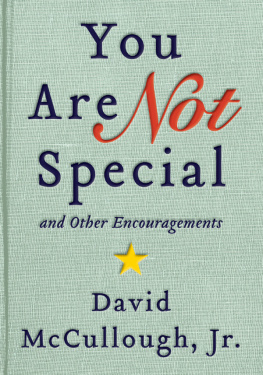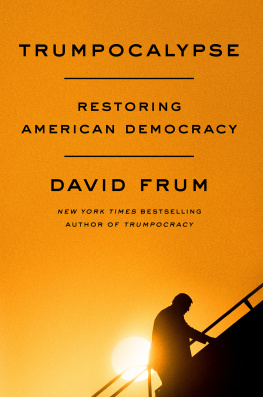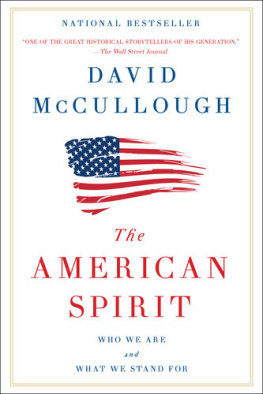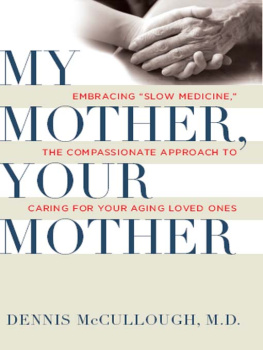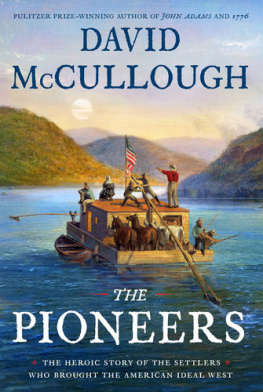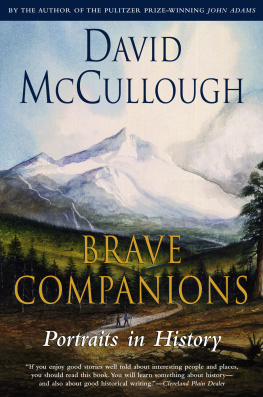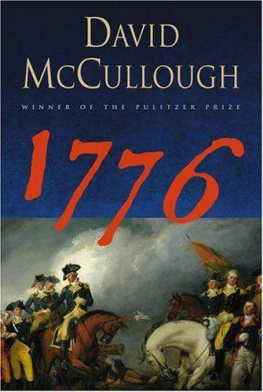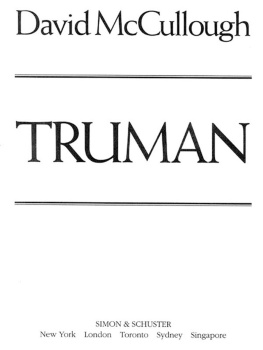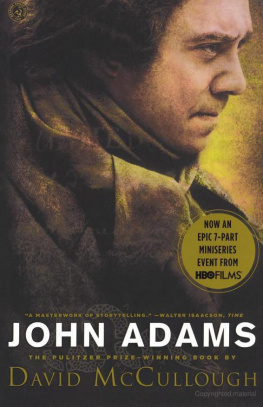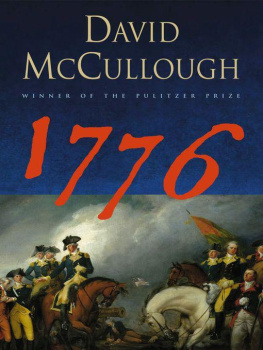For my children... for everyones
Let us, then, be up and doing....
A Psalm of Life by Henry Wadsworth Longfellow
Contents
L ATE IN THE AFTERNOON OF J UNE 1, 2012 , I GAVE A commencement speech. My audience, or so I thought, was seated there before me, the senior class of the public high school in Wellesley, a suburb west of Boston, where I teach English. I did not know the electronic world was eavesdropping, nor would I have thought anyone beyond earshot would take an interest in what I might say. Within a few days, thoughthanks initially, it seems, to a line or two taken out of contextmy speech and I became international headlines. Suddenly I was the youre not special guy.
From Berlin to Beijing, Facebook, Twitter and the blogosphere went crazy. The video, which I did not know was being shot, went viral. My e-mail in-box exploded. My voice mail overflowed. Local, national and international print reporters, radio people, television people scrambled to interview me. Pundits and provocateurs everywhere climbed onto their soapboxes to gas about the speech and me and kids today. Letters of appreciation began arriving. Long-lost students and friends checked in. Limousines appeared in my driveway. On the street strangers stopped to praise and thank me and take my picture. Sane-seeming people urged me to run for office. Far-flung rabbis, priests and ministers borrowed from and sermonized about what Id said. It was sudden, surreal and gratifying. All because of a twelve-minute speech.
And I, a somewhat ruminative sort perfectly content with a quiet life and disinclined to opinionize, scratched my head.
My hope that afternoonmy only hopewas to be helpful to the graduates. This was simply good-bye and good luck to a group of kids I liked very much and knew pretty well, kids for whom I felt responsible. Moments after I sat down they would be done forever with high school, with childhood, and off to the rest of their lives. We were releasing them to the wild, and mine were last-minute reminders, instructions and a fond fare-thee-well.
The substance of my remarks came from a growing concern about what Ive been seeing over the last several years, in my classroom, around school, across the culture, in my own household. Spurred by well-meaning but all too often micromanaging parents with resources to expend, teenagers in great number are becoming ever more preoccupied with conspicuous achievementoften at the expense of important formative experiences. Many are suffering from (or, rather, enjoying) inflated notions of themselves and regard every opportunity as theirs for the asking, every accolade their due. Were not superior... , which popular notions of equality and fairness inculcated since pre-K prohibit them from thinking,... were just special. Glowing successes, they assume, and therefore much happiness, will naturally follow. In this new cult of exceptionalism, to be average, just a regular kidfor most an unavoidable statistical factis to be thought inferior. To be ordinary is to be left behind.
No wonder so many of our children are having trouble recognizing what matters. No wonder so manyunderprepared and anxiousare having trouble finding their way. Im not the first, certainly, to notice whats happening, nor the first to share his concerns, but twenty-six years in a high school classroom, and the teenagers in my own house, have afforded me certain insights.
Hence this book.
In its way, though, my experience has been narrow, limited to two excellent and well-heeled suburban schools several thousand miles apartone public, one private: Wellesley High for ten years and, before that, Punahou School in Honolulu for sixteen. In that time more than four thousand students have come through my classroom, almost all of whom have been interested and kind and cooperative and receptive to my efforts. In their company Ive enjoyed innumerable satisfactions and many laughs and much fondness. Ive also had supportive administrators and able, inspiring colleaguesand, but for the rare exception, parents have left me to my work with generous encouragement. Ive loved every day of my teaching life and have prized every affirmation. I recognize how lucky I am in all of this. This book, then, is an expression of thanks to the educators, parents and kids, mostly the kids, whove given so very much to me... and of admiration for those who work wonders under conditions far less ideal.
I write in sympathy with parents, too. Janice, my wife, and I have four childrenthree of whom are teenagersand we often find ourselves subject to the same temptations and cultural encouragements that can prove so problematic.
I know, then, why and whereof I write; Im in the middle of it.
I N MANY WAYS adolescents have never had it better. Opportunity, at least for some, would seem nearly limitless in scope and number and wow factor. But, for fear that left to themselves children will screw up their shot at the cultural plums, many parents have reduced to just about nil their childrens latitude for independence, for pursuing an impulse to explore, for taking a risk, for enduring struggles, experiencing failure and figuring out what to do about it. Were all over them everywhere they turnin no small measure because we see in them such quality, such potential. Or hope we do. And shouldering into fifty-pound backpacks, the kids are off to their next obligation, trying to remember what theyre supposed to be thinking. Then theyll want to know if its going to be on the test, and I wont be asking for, like, quotes, will I, and is it okay if they study with a friend, and could I just go over the, like, key points one more time, and maybe post them online, too, please, and if they, like, happen to have a bad day or something, could I allow a retest or at least, you know, scale the grades?
To question their mind-set does not occur to them. They feel neither indulged nor directed nor dependent. Nor, for that matter, fretful, nave, self-absorbed, or soft. What they feel is perfectly normal although they sense theyre disapproved of by certain old people for reasons they dont quite get. Yes, theyre aware of other perspectives and of people less fortunate, but the conditions under which they live set for them their norm. And what they see all around are kids a lot like themselves. In fact, put to it, many privileged teenagers would, against their better judgment, intimate with a note of envy that the disadvantaged are the real advantaged for the sympathy they enjoy, the excuses their circumstances provide, the honest pride theyve earned from enduring hard knocks, their more legitimate claims to cool. With apologies to Mr. Kristofferson, nothing to lose looks to many privileged kids an awful lot like freedom. With their privilege, though, come expectations, and with expectations comes stress, and stress can be uncomfortable. Troubling to them, too, is the thought that anything they might achieve will be dismissed as just another dividend of undeserved advantage. At some level even teenagers understand you cant ride the chairlift and call yourself Edmund Hillary.
But theyre just kids, of course. Works in progress. Neurologically unfinished. To expect of them far-reaching perspectives and informed objectivity, even fair-mindedness, particularly about themselves, is unreasonable. Nor did they choose the circumstances under which theyre being raised. As with most other things, that was done for them.
And these are strivers with blinders on. Theyre trained, harnessed and directed to perform, to have answers and have them first, to earn As, score goals, play Bach, to prove themselves always and forever special. In everything they do, then, the stakes seem to them frightfully high. Any sign of a wobble and in step their parents. These are children, lets remember, whose framed ultrasound images still sit on dresser tops, whose parents Facebook postings spill freely into the boastful, whose holiday cards are handsome, back-lit portraits of them accompanied by single-spaced missives recounting the years triumphs. From birth plus a day or two theyre strapped into the car seat and in a sense never get outtheyre protected, driven and aimed in one direction. Ballyhooed from the hind end of the SUV from Baby on Board to My Child Was Student of the Month at Shady Grove Middle School to Amherst College, theyre whisked to volleyball showcases, cello recitals, chess tournaments, speed and agility training, calculus camp, attitude tutorials, brain training. The expectationor ardent hopeis that every dividend will soon follow. Mothers and fathers are the strategic planners, the general managers, the CFOs, the PR and marketing departments, the chauffeurs, and, should something go awry, the troubleshooters. Should catastrophe strikenot enough playing time in the big game, a B on the research paper, a prom dress crisistheyre the cavalry.

